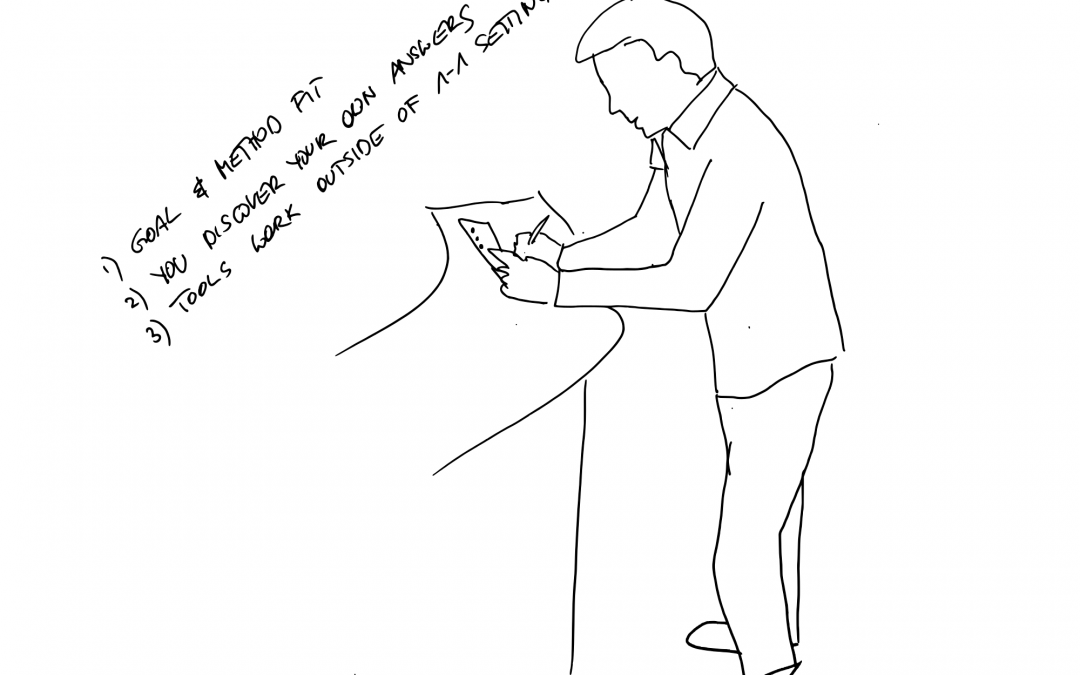The professional world is getting faster and increasingly technological. Professionals are, however, still human beings. And human beings need movement, sufficient nourishment, social connections. They have a need to be productive and creative. Technology can be complementary for healthy and successful professionals, but trying to copy machines and becoming perfectly mechanical doesn’t work. At least not in the long run.
People have become aware that their physical well-being is tightly connected to their success and contentment in life and that taking care of your body only when you are already sick or extremely stressed is neither beneficial for the person, their work or the health-care system.
To be able to deal with stress and stay productive, healthy and well, many professionals are seeking guidance from coaches or practitioners to change stressful or difficult situations through body-based methods.
As with any industry, there are many practitioners or coaches out there and finding a good one is not always easy. I am continuously learning about and trying different methods. I’m always curious about new developments and I enjoy meeting people who practice bodywork or approaches that can enrich my personal experience.
I am curious but also a sceptic. Before deciding to get a session with someone, I am checking for various things.
Over the years, I’ve come up with some criteria how I choose whether or not I want to get a session with someone. As someone who works in the industry, I want to share my top three chriteria with you in the hope that they inspire you to think about what your personal criteria are when you are looking for guidance or support in your personal development through body-mind approaches. The criteria below have worked well for me. They are applicable to holistic body-based approaches that are designed for self-empowerment.
They are interested in you – your problem or goal – and see if/how their approach fits your needs.
There are innumerable methods and approaches out there and all of them can be useful to some people in some situations at specific times.
I start doubting how much a person can support me when all they talk about is the magic of their work without practically showing or telling me how it can aid me. Also when a coach or practitioner is so in love with what they do that they believe it’s the solution to anything and for anyone, the sceptic in me wakes up.
I chose to practice and teach an approach that I find highly effective, simple and practical, because it teaches awareness by connecting body and mind in a holistic and hands-on way. I am, however, aware that it will not be suitable for everyone. So in a first session, I want to get to know the person and see if we have a connection and if the potential client can benefit from my tools and expertise. Just because it works great for me, doesn’t mean it’s suitable for you. It is tempting to want to help others because you have found something that works for you. There is a risk of imposing your way on others. For me, the basis for any transformation is based on personal freedom and choice.
They don’t have the answers for you, but give you space to have a fuller physical experience of yourself.
I am a proponent of learning by experience. I think it’s the only way for real learning and thus for integrating what you discover and learn in a session into your daily life. Children learn by imitation and finding their own way how to do things. Just saying the right words and intellectually understanding the concepts your coach is talking about, can feel good, but will you be able to implement this knowledge? My experience is that the best basis for change is when body and mind are aligned and all of you moves towards your goal. It is much more difficult to implement knowledge into your life if only your mind agrees. When you have a strong physical experience, the body provides a lot of energy that guides you in the right direction (your direction). Being in touch with yourself, your body, is the fundamental source of willpower, direction and wisdom.
For a somatic-based transformation process, personal and physical experience form the basis of the change the client wants to create for him or herself. If a coach or practitioner tells me what I should do, I start questioning this approach. I prefer to check in with myself – my thoughts and gut feeling. And so should you.
You can use their tools also outside the session or working room.
Somatic-based transformation roots in personal experience. The session should form the basis of self-empowerment in and outside of the working room. You should be able to use the tools also outside of the sessions. The formats your coach uses might vary according to their personal experience what brings the best results for the clients.
When I get to know my clients in the first few sessions, we discover together what kind of practice or attention training works best for them. I don’t know in advance but make suggestions of what he or she could try. Sometimes I give a written guideline for personalized 5-minute trainings, sometimes I teach a physical exercise to strengthen a certain quality my clients would like to have more in their life.
Factors that influence what I offer for in-between sessions are: time availability, stress level, motivation, urgency. Finding out what works best is part of the process and something only the client can do.
The moment of doubt comes for me when I only go to a session and I feel better afterwards but I have no idea what happened or how I can use this new experience. If I’m not learning anything that I can apply by myself outside of the meetings, you may guess it, the little doubt devil knocks at the door.
I hope these criteria can help you choose a good coach. There are more factors, of course. A given are mutual trust and respect. The safeguarding of confidentiality. The coach should be able to explain the approach and how it works. Ideally they can give you a step-by-step guide through the change process. You should always meet at eye level – don’t put your coach on a pedestal and don’t allow your coach to put you down either. We are all humans.
What are your criteria? Feel free to share your insights and experiences in choosing a good coach for transformation work.


0 Comments